In this episode I talk with Dan Green, who is known for voicing both Yugi and the Pharoah Yugi in Yu-Gi-Oh, playing Mewtwo and Entei in the Pokemon films, Knuckles the echidna in Sonic X and a ton of other voices throughout the years.
We talked about how he came up with the voices for Yugi’s 2 persona’s, what it was like coming back to voice him for the Dark Side Of Dimensions movie after so many years, why we thought the Yu-Gi-Oh anime was a success and wasn’t a series made just to push a product like other shows that aired at the same time and then we went into detail about his new project Crossing the G.O.D.S.
Yu-Gi-Oh was one of my favourite series growing up so it was great to talk to Dan and learn more about the character and about himself and his projects. I had a great time conducting this interview and I hope you enjoy it too.
Joel: So finding things out nowadays about an anime can take seconds but back in 2002-2003 it wasn’t as much the case. I was convinced for years afterwards that Yugi and Yami were voiced by 2 different people. Was it more the direction from Eric (Stuart) that allowed you to find the places for those voices? Because he mentioned yesterday that his Kaiba is mainly in his register but he had to find the attitude of Kaiba. Both of the Yugi’s aren’t in your regular register, it’s a voice you put on for both of them. How did you come to find those places?
Dan: Right. So that’s largely creative decisions that are determined by the producers, and finding what they want is a process of discovery for them too. And you know, you might have an idea, and you express that to the person who’s doing the role. And then they do their version of what they think you mean. So there’s some trial and error or discovery process involved with that.
And obviously, the pharaoh is treated vocally very differently in the original series from Japan. And I completely understand when, you know, somebody’s watching this show, it’s like, okay, he says Yu-Gi-Oh! grows about two inches, and now he talks like a man, it’s a little strange, right. But, you know, obviously, I think what people are responding to is, well, that deeper voice creates more of a father/son relationship, maybe he sounds older, because he’s an ancient spirit. You know, that sense of more refined diction suggests reality, which we would associate with a pharaoh, you know, so for those reasons, those choices, I think, connect.
But yeah, it’s a discovery process. And also, Yugi being a boy, well, obviously, you know, I don’t have a high voice, but in finding out what sounded high enough, but not too high and fake and stupid. You know, that’s a fine line, and I haven’t watched through the whole series, but, there definitely were seasons where whoever was directing me was encouraging me to raise up the pitch. And I’m like, ‘this is what we did before’, but I’m just here to do what I’m told. And so those kind of things affect what the audience is actually being provided. But back to the sense of your original question, is that initial process, it’s mainly controlled by the producers. And you know Eric has input too, but he’s serving their vision as well.
Joel: So when you first got the sides for the character, were you a little bit freaked out once you realised you were a guy addicted to playing a card game, who has a split personality, where one believes he is a pharaoh?
Dan: Hahaha you think that would freak me out. But I have a cousin who’s just like that. No haha. When you’re auditioning for anything, as an actor, you’re putting yourself in a better position, if you just say yes, to what you’re being given. And not ‘Why the hell would they do that?’ And even more generally, I don’t judge the stories that I perform. My job is to perform them as best I can. I mean, that’s the ethical ideal, right? Of course, you have your own opinion. But a professional needs to put that aside, and, and do their job. Or at least that’s what I was taught.
Joel: Did you think when you first started the series, that it would still be iconic, and so touching to so many 15 years later?
Dan: No. And in the context of how this occurs in the American entertainment culture at the time, there was Pokemon, you might have heard of it right. And, and then this thing Yu-Gi-Oh! comes along, which seemed to be sort of like, ‘okay, now the original Pokemon fans are ageing, and they need a series similar, but it’s a little darker, because they’re getting a little bit more complex’. And so, is it really possible to, if you will catch lightning in a bottle twice? So there was a lot of scepticism as to whether or not that would catch, but also, as you know, as any actor would tell you, you have a job, you just do it, and you never know what’s going to happen. So no anticipation that it would have been popular when it initially was premiering in the United States. And, by multitudes greater, certainly no anticipation that 15 years later, since it’s been off air, that anybody would care about it.
Joel: What was it like coming back to those characters for the Dark Side of Dimensions? Eric touched on it yesterday that it was good to be able to come back and do a more traditional adaptation of it. With the darker storyline and characters.
Dan: Yes. Because now the fans are more mature. Right? We don’t have to apologise or cover for that.
Joel: So what was it like coming back to be Yugi again?
Dan: Like seeing an old friend. And I really enjoyed being able to have Yugi have matured a bit. His innocence is is really wonderful in the original series, but yeah, I think we’re ready to see now. Let’s see him grow up.
He’s not going to grow up to become the Pharaoh. Right? Just like Nightwing’s, not gonna grow up to become Batman. But, yeah, so it was a pleasure. And I’m working with people that I’ve known for years, really admire and really care about. So that’s fun. And you know, it’s just a huge gift to be a part of something that is meaningful to people in any way. And I don’t take any personal responsibility for that. I just feel like I’m a part of something. Not it’s not special because of me.
Joel: Right, you just did the best thing you could for the character.
Dan: Right. And hopefully, I didn’t screw up.
Joel: So I was also talking to Eric yesterday that both of you guys were involved in Pokemon and Yu-Gi-Oh! Things that we discussed as kind of like a ‘gateway series’. At the time, a lot of people watching this and they didn’t realise they were watching anime, and now a lot of the stuff coming out these days has a lot to do with how popular your series like Dragon Ball Z, your Pokemon and Yu-Gi-Oh! were. So what’s it like being involved in what’s such a big phenomenon now, like, being involved in a series that opened the gateway to the anime phenomenon?
Dan: I’ve never thought it that way. But I guess it feels like a privilege. One of the things that continues to really be relevant to me, is the experience of meeting fans of the show. And, you know, some fans are just, super excited, and, and they’ll say great things like, ‘thanks for making my childhood amazing’, or something along those lines. And that’s wonderful to hear and under any situation.
And very often, there are fans who will share things like ‘I was going through a really hard time in my life, and there was Yu-Gi-Oh!, and that helped me get through this or that or what have you’. And of course that’s not something that you’re foreseeing when you’re recording but I understand what it’s like to go through hard times. I suffered from depression when I was in my adolescence and I was even institutionalised for it. And for me, the entertainments and the go-to’s that provided me comfort, that provided me hope were things like Star Wars and the music of Peter Gabriel and stuff like that. We all have those things that become companions in our hardest times. And you know, and again, I don’t I don’t take any personal responsibility for it. I just feel privileged that something that I did was useful and helpful to somebody in some way.
Joel: So you obviously very known for the Yugi character. Are you okay, if there was no more Yu-Gi-Oh!, if there was no more movies? Is there closure for you where the character ended up?
Dan: Oh, for sure. Yeah. It’s interesting that we were just talking to a young man who was, you know, speculating about ‘what if they came back?’ or ‘how could they come back?’ And you know, ‘some fans are much more attached to the original series’. But for me, it’s all just been a gift. So I have no expectations of well, ‘it really should be more’ and, ‘what you should have done with these characters is this or that?’
Joel: If there was more it would just be a bonus for you?
Dan: Exactly, exactly. And I’m also very grateful that they aren’t just churning out stuff and it’s meaningless.
Joel: Well, that’s another thing as well, quite a few of the anime of that era, they were kind of 30 minute cartoon ads for the product they were trying to push. And I think, why Yu-Gi-Oh! is still such a special thing is because it had a story, like you said with a complex, beginning, middle and end. And it could stand on its own? Obviously it encouraged a lot of people to get into the card game. But do you think that the actual story, the characters and everything it setup is what has driven the passion in the fan base?
Dan: Yeah, I mean, I know for a fact that I don’t know. But my guess is that it is those human relationships that anybody understands, that helps somebody attach to what they’re seeing. If Yu-Gi-Oh! were merely an excited recitation of card rules, it would only go so far, right? But you have the themes of friendship, and you have, like the father son relationship, or, or the avuncular relationship, or whatever you want to call it, between Yugi and Atem, you know, everybody understands that, even if they haven’t had it in their life, they wanted it. Or maybe it’s a reflection of something that they did have, you know, and maybe no longer have, right.
I’ve definitely had fans relate through Yu-Gi-Oh! to their experience of their father figures. And for me personally, I’m not interested in stories that I can’t connect to. So they need to have a human element.
Joel: So unlike a lot of voice actors in the business, you’ve actually got something special. A lot of times the voice actor, you’re kind of like the end product. It’s gone through localisation, it’s been written, you do the voices, and then it goes out. You’ve now come full circle and something we saw at the panel on Friday is Crossing the G.O.D.S. So you’ve gone from being the end to now being on the creating side. What’s that like and can you explain the Crossing the G.O.D.S. project?
Dan: Yeah, for sure. I liked the way you just phrased that. I’m going to steal that haha.
Joel: You’ve now gone full circle on the creative side of things.
Dan: Right! Well, what fans of Dan Green probably don’t know, is that I was thinking of story ideas since I was in my teens. And again, that was another thing that helped me get through the stuff that I had to get through. I’m sure so many people who might be listening to this interview, have story ideas of their own or a world of fantasy that they go to to help them deal with stuff. And so Crossing the G.O.D.S is one of several ideas that I had come up with, before I even got to Yu-Gi-Oh! as a performer. And I knew when I was in college, studying to be an actor, that acting was the thing that I was maybe most suited at, naturally talented, or whatever. But that I never wanted to be just an actor. So not that there’s anything wrong with that. So for me, I feel like with Crossing the G.O.D.S, I’m finally paying attention to those parts of myself that are like, ‘hey, okay, with the acting stuff already, but what about us’. It’s time to get those things in gear. And when you have those things inside of you, I think you should listen to those voices. And if you don’t, then this is true for me anyway, there’s a part of me that has this feeling like I’m letting myself down, it’s like, ‘come on you, this is relevant to you said, you’re gonna give this a shot’.
And now I’m just so fortunate that, because there are some people that care about what Dan Green does, that maybe some people will listen to a story, I have to tell.
And a couple of years ago, Eric and I were doing an appearance in England, and I don’t do very many appearances. And we were there. And on a break, he said, ‘you know, we should do something of our own’. And I kind of had this catalogue of stories, and I’m like, ‘well, let’s see’. But another thing that he said was ‘we should, you know, really take advantage of the fact that we know all these talented actors’, and, ‘how do we kind of bring the band back together’, and it just happened that Crossing the G.O.D.S was a concept that was that was more of an ensemble piece. And that seemed to be a better fit for what Eric was talking about, this wonderful cast that we could bring into place. So that’s kind of the sequence of how that happened.
And also, another thing is, as a kid, the first thing that I did, that I was recognised for being a little bit better than average, was drawing. My mom was very talented at drawing and visual arts, and she taught me and, then I went on further from there. So Crossing the G.O.D.S is a great opportunity for me to write and draw and direct actors. I’m not writing the music, but I’m helping to direct where the music should be.
Joel: Directing the tone?
Dan: Right, right. This is how the music should sound, I’ll give you a sample track, and then I’ll give them feedback. Even the sound design, I’m doing the sound design for the first episode, probably the rest of the episodes now, and it’s not like I’m a control freak. It’s just that I happen to be the one who’s willing to do those things at this point. And I certainly will need help doing those things. If we want to see the show in the next 50 years.
Joel: You said it’s kind of concepted as an idea a couple of years back. You’ve got to draw the pieces, obviously there’s a lot of parts involved. Roughly how long does it take for an episode to be made? I know you mentioned the idea was to have them each be about three to five minutes?
Dan: Well, they’re five to seven minutes or so. I think three minutes will be a little too brief. But so keep in mind that in that roughly two year period, that went from a conversation, to writing a script, and it’s written as a series, not a movie, right? Movies, a very different structure.
But if you if you put the 26 episodes that we have together, the running time would probably be a little over two hours. But if you go online, and like say, ‘how long does it take to write a movie script’, they’ll tell you, it takes at least six months, usually, I mean, it’s not that people can’t do it faster, you draft, you rewrite your rewrite. So there’s let’s say, appropriately, six months to develop the writing. There’s the recording process. And also, with the visual approach that we’re using, it’s not straight up animation, and so we had to develop a unique visual style that told the story clearly and in something that we were excited about. So, you know, it’s really a process of trial and error and discovery.
Initially, the visuals were going to be much more simple, like not even bothering with backgrounds just maybe having some sort of graphic abstract brushstroke. Or have a rough sketch of the character, just so you know, who’s talking or that sort of thing, much, much more simplistic.
Joel: Like more of a storyboard than an animatic?
Dan: Way more like a storyboard. Exactly. And sort of, like, you know, what I mean by a Ken Burns effect? Like, we’re just panning over an image. But as you saw, it’s not as simplistic as that, there’s camera moves, I’m creating a 3D set, in which it’s kind of like a pop up book, you know, we’re using two dimensional imagery, but the camera moves around. And so you get parallax views, when something in the foreground moves faster than the background, which really provides a sense of motion, that’s not really there but also depth. And the characters are written three dimensionally. And so and I think the artwork should reflect that, the visual style is not cartoon-y, it’s more realistically oriented. And leaving the shading on the characters. When somebody gets angry, they don’t have an icon blinking over their head. Again, nothing wrong with that. But that’s just not the sensibility of this. That’s right.
Joel: And its pitched to be a bit more of a mature series from what you said?
Dan: Absolutely.
Joel: I mentioned this to Eric, but it reminded me when I saw it of a bit more of a grounded X-Men?
Dan: Yeah, very similar. Or like, the Marvel series on Netflix without the vulgarity.
But yeah, you know those are written, obviously, for adults. And what matters in those stories are human level things. I have had seven year olds and like, my kids are seven year olds, and they watched the first episode, and they’re into it. But that’s not necessarily the thrust.
Joel: So, obviously, the people that were here at the panel were lucky enough to see it. Do you have any kind of schedule, when you may put Crossing the G.O.D.S out into the public for a little bit of initial feedback?
Dan: Yeah, yeah. So that’s the next step. And we’re getting a lot of information from the fans’ reactions in terms of, ‘what are they responding to’ and the second episode was almost complete for me to share here as well. But I literally had a movie come up, and a couple of audio books, and an animated series. It was like, ‘wait a minute, I gotta finish the second episode for Australia’. ‘I only need a month of time to get this work done’. And then other things eat up some of that time, but anyway. We want to get three episodes done. And get some feedback from people within the industry. We also definitely wanna get feedback from fans, any audience that would like it. And not only anime fans might be interested in it, it’s not anime, this style is not anime. But that’s sort of the idea.
And currently, maybe in six months or so we could have three episodes up on Facebook or our website. And people could at least get a sense of what the series’ flavour is, what the idea is, and hopefully we can find a way to get enough funding so that I am not the only artist working on getting the images done. I mean, I would still be art director, it would still look very much like the first three episodes.
Joel: Well, if you’re planning it for 26 episodes, it could take a long time.
Dan: Heck, yeah. Yeah. I mean, I can’t imagine creating an episode, even with support artists, and the music we’re creating is original music, you know, we’re not just doing rights free stuff. It’s work, and it’s being scored to what’s going on. So that composer needs a month, you know, for that.
So if we could do an episode a month, I think that’s probably the fastest we could go. But everything’s been recorded. The cast sounds great. From the writing part of it, you have a scene in your mind and you create the dialogue. And there were many moments with each actor, where they were hitting the line in just the way that I was imagining it without me directing them there. It was like chills.
Joel: Well that’s when you know you’ve got a good group of people together for this.
Dan: Definitely a good group of people. Yes, for sure. And also, all these actors that are familiar to these to his fan base, are doing things that this fan base has never heard them do before. Eric’s not doing anything similar with Blacksmyth.
Joel: Yeah he surprised me. It kind of sounded like he was going for an Australian/British mix?
Dan: Yeah. It’s modelled after the accent that you might associate with Billy Idol.
With me doing Cross, I’m in a very familiar territory. But it’s not exactly anything that you’ve heard before. Veronica Taylor’s doing something, I won’t say she’s never done before. So on and so forth. Yeah, so I’m really excited to be able to share those wonderful performances as fast as I can.
Joel: Before we wrap up where can fans follow your work online? Or what do you have in the works at the moment that they can look forward to in the near future and things that you can talk about? Where can they follow you and Crossing the G.O.D.S?
Dan: Well, the some things to look forward to, I’ll be in doing some role in the series, Emma. And I also recently recorded something that I think fans will enjoy that I can’t discuss with specificity. And I regularly do audiobooks.
And you can find those at audible.com. I am so bad at self promoting. I don’t have a website, I don’t promote myself. And it’s not because I feel like I’m above that. It just doesn’t enter my mind to promote myself in that way. But for the Crossing the G.O.D.S, you can find us on Facebook. We also have a website. But Facebook is probably the best place to track whatever’s going on with that.
Joel: Awesome! Thanks so much for your time.
Dan: Well, thank you for asking all these questions. It was a great interview. Thank you.
If you want to see more content like this and never miss one of our frequent gaming and anime giveaways come and Follow Ani-Game on Twitter.
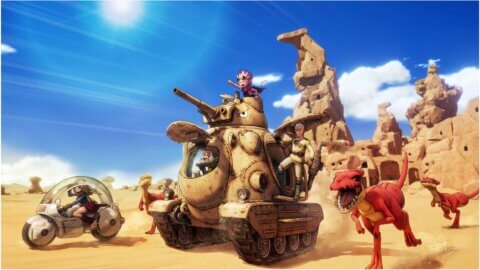
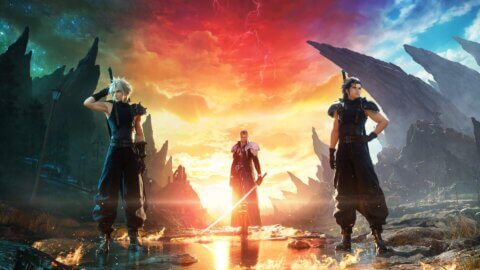
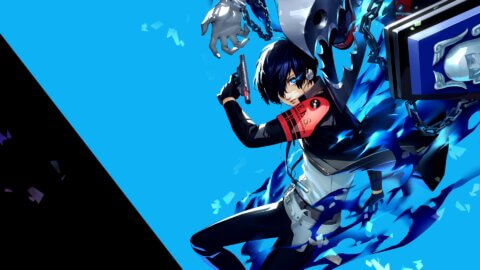
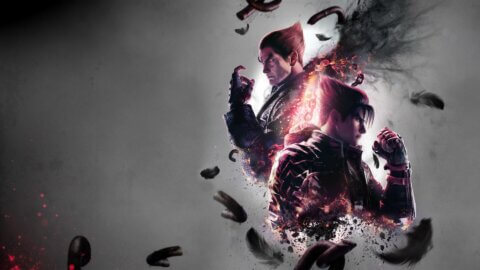
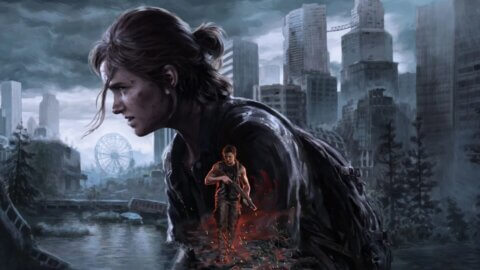
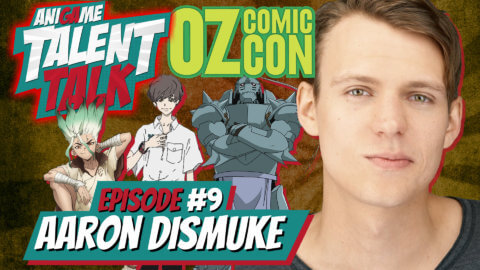
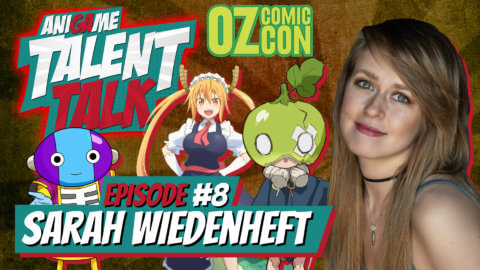
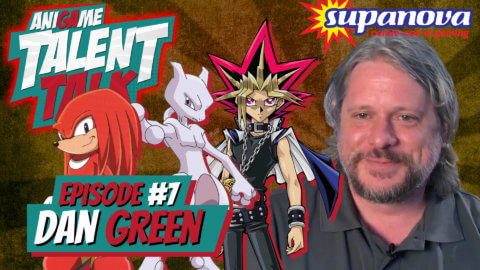
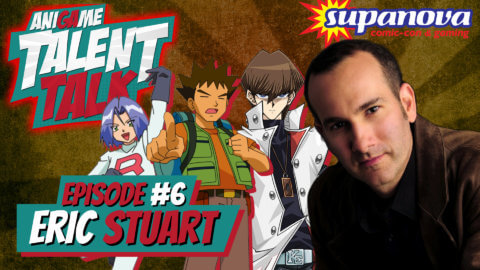
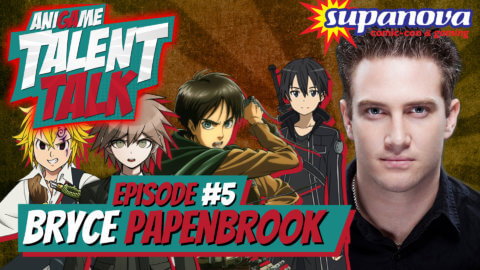

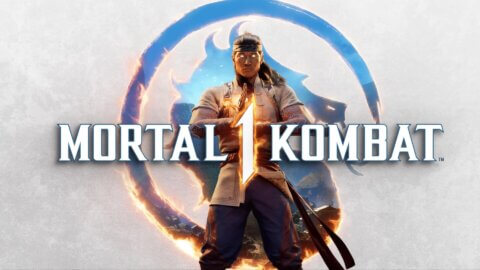
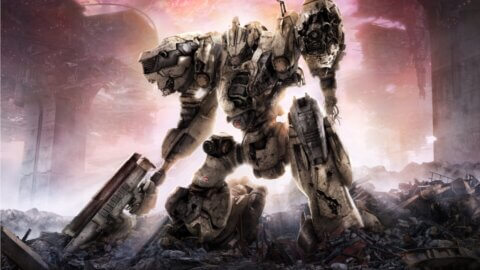
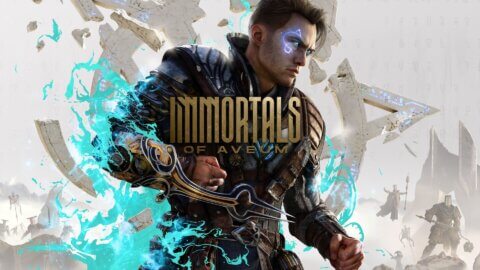
This is amazing!!!…also *immediately goes to audible to find Dan Green*